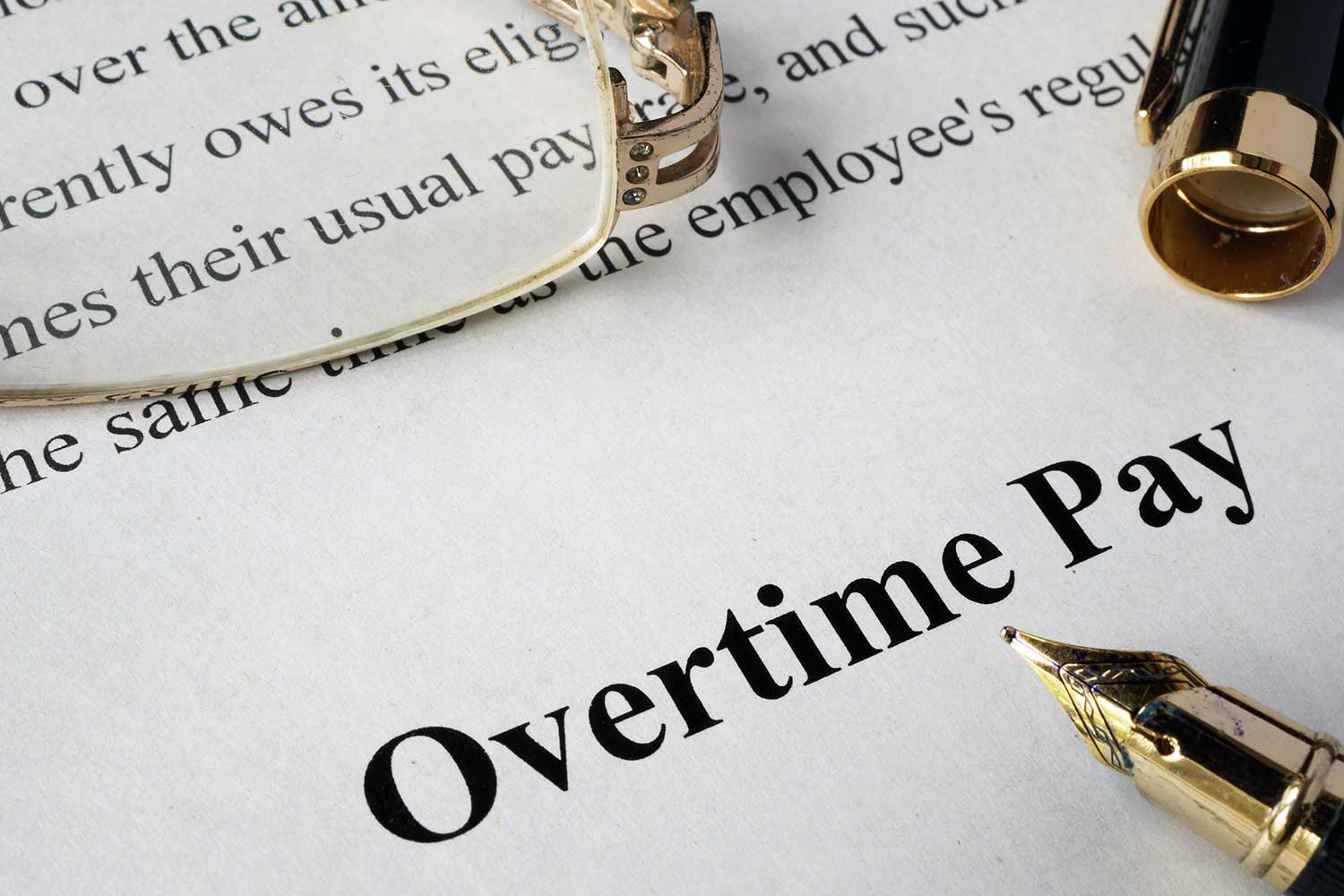What you need to know.
Effective January 1, 2020, the Fair Labor Standards Act (FLSA) will update the salary level test for overtime exempt status in the following ways:
- Raising the exempt “standard salary level” from the current level of $455 per week to $684 per week (equivalent to $35,568 per year for a full-year worker);
- Raising the total annual compensation requirement for exempt “highly compensated employees” from $100,000 per year to $107,432 per year; and
- Allowing employers to use non-discretionary bonuses and incentive payments (including commissions) paid at least annually to satisfy up to 10% of the exempt standard salary level, in recognition of evolving pay practices.
What is the FLSA, and does it apply to my nonprofit?
The FLSA is the federal law that requires covered employers to pay at least minimum wage, currently $7.25/hour, and one- and one-half times the employee’s regular rate of pay for any hours worked over 40 in a week.
The FLSA does not cover all employers or employees, however. Certain small employers not engaged in interstate commerce are not covered by the FLSA, although individual employees may be.
To learn more about FLSA coverage and other compliance areas check out the user-friendly Department of Labor’s FLSA Compliance Videos.
Which classifications are exempt from the FLSA?
Exempt from the FLSA are any workers employed in a bona fide executive, administrative, or professional capacity typically referred to as “White Collar Exemptions.”
For any these exemptions, the worker must meet all of the following three (3) tests:
- With certain exceptions, the employee must be paid a predetermined and fixed salary that is not subject to reduction because of variations in the quality or quantity of work performed (the “salary basis test”).
- The amount of salary paid must meet a minimum specified amount (the “salary level test”).
- The employee’s job duties must primarily involve executive, administrative, or professional duties as defined by the regulations (the “duties test”).
Note that certain states have their own wage and hour laws which don’t recognize a highly compensated employee standard or set a higher salary level minimum for overtime exempt status.
Most notable is California, where the salary minimum for overtime exempt status is adjusted annually and is scheduled to reach $62,400 for employers with 26 or more employees by 2022.
Changes affect highly compensated employees and recognize potential offsets.
The DOL updated the highly compensated employee total annual compensation level to $107,432, a higher compensation level that is paired with a reduced duties requirement to provide an alternative basis for exemption from the FLSA.
Since the DOL rules now allow employers to count annually paid non-discretionary bonuses and incentive payments toward satisfying the salary level minimum, employers utilizing this offset will need to have specific policies detailing the accrual method of such compensation and conduct annual accounting to make sure these additional funds satisfied the minimum salary level.
Does my nonprofit need to act because of this change?
The DOL estimates that in 2020, 1.3 million currently exempt employees will, without some intervening action by their employers, gain overtime pay eligibility.
So employers affected by this change have to decide whether to reclassify employees who no longer will receive $679 a week as nonexempt and pay overtime or increase their salary to the minimum.
No increase in total compensation will result if these workers do not work overtime, but compensation could increase substantially if more than 40 hours a week are worked on a regular basis.
Next steps.
Nonprofit HR staff should work closely with management staff responsible for grant writing, development, and contract administration to ensure that sufficient funds are allocated if increases in total compensation result in a greater need for funding.
Since salary increases to those positions below the new salary level minimum will probably impact your compensation system, increases to other positions should also be evaluated and considered to assess how compliance with the new salary minimums affects total compensation.





